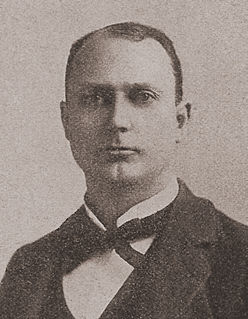A Quote by L. Whitney Clayton
Further, bearing up under our own burdens can help us develop a reservoir of empathy for the problems others face.
Related Quotes
Self-absorption in all its forms kills empathy, let alone compassion. When we focus on ourselves, our world contracts as our problems and preoccupations loom large. But when we focus on others, our world expands. Our own problems drift to the periphery of the mind and so seem smaller, and we increase our capacity for connection - or compassionate action.
My wish list is pretty short. I wish that we had empathy. As a society, we are so wrapped up in our own artificial creations that we have become disconnected from one another and the wonder of our natural world. I truly believe that empathy is the key to solving the majority of our environmental and social problems.
When we endure our own tragedies or trials, most of us develop some empathy and compassion for others who are suffering. The trick is to keep that sense of compassion going throughout our daily lives, when we are likely to go on automatic pilot and move back into being judgmental, especially when times are tough.
According
to my own experience, the highest level of inner calm comes from the
development of love and compassion. The more concerned we are with the
happiness of others, the more we increase our own well-being.
Friendliness and warmth towards others allow us to relax and help us to
dispel any sense of fear or insecurity so we can overcome whatever
obstacles we face.
We are beset by problems and if we look for their source, we find they arise because of our selfishness, because we tend to pursue our own interests at the expense of others. Our various religious traditions exist to help us reduce these problems. They all teach ways to overcome suffering through cultivating love and compassion, tolerance, patience and contentment.
It’s in our interest to take care of others. Self-centrednes s is opposed to basic human nature. In our own interest as human beings we need to pay attention to our inner values. Sometimes people think compassion is only of help to others, while we get no benefit. This is a mistake. When you concern yourself with others, you naturally develop a sense of self-confidence . To help others takes courage and inner strength.
Contemplation is a very dangerous activity. It not only brings us face to face with God. It brings us, as well, face to face with the world, face to face with the self. And then, of course, something must be done. Nothing stays the same once we have found the God within…. We carry the world in our hearts: the oppression of all peoples, the suffering of our friends, the burdens of our enemies, the raping of the Earth, the hunger of the starving, the joy of every laughing child.
The more problems you have, the more potential you have to help people. One of the most paralyzing mistakes we make is thinking that our problems somehow disqualify us from being used by God. [...] If you don’t have any problems, you don’t have any potential. Here’s why. Your ability to help others heal is limited to where you’ve been wounded.
Do you think that we're products of our environments? I think so, or maybe products of our expectations. Others' expectations of us or our expectations. I mean others' expectations that you take on as your own. I realize how difficult it is to seperate the two. The expectations that others place on us help us form our expectations of ourselves.
As with any other great force of nature, there is both glory and danger in the stories we tell ourselves. Some are toxic and keep our problems festering. Others are tonic and bring us beyond the limitations of our previous history. To be in a life of our own definition, we must be able to discover which stories we are following and determine which ones help us grow the most interesting possibilities.






























